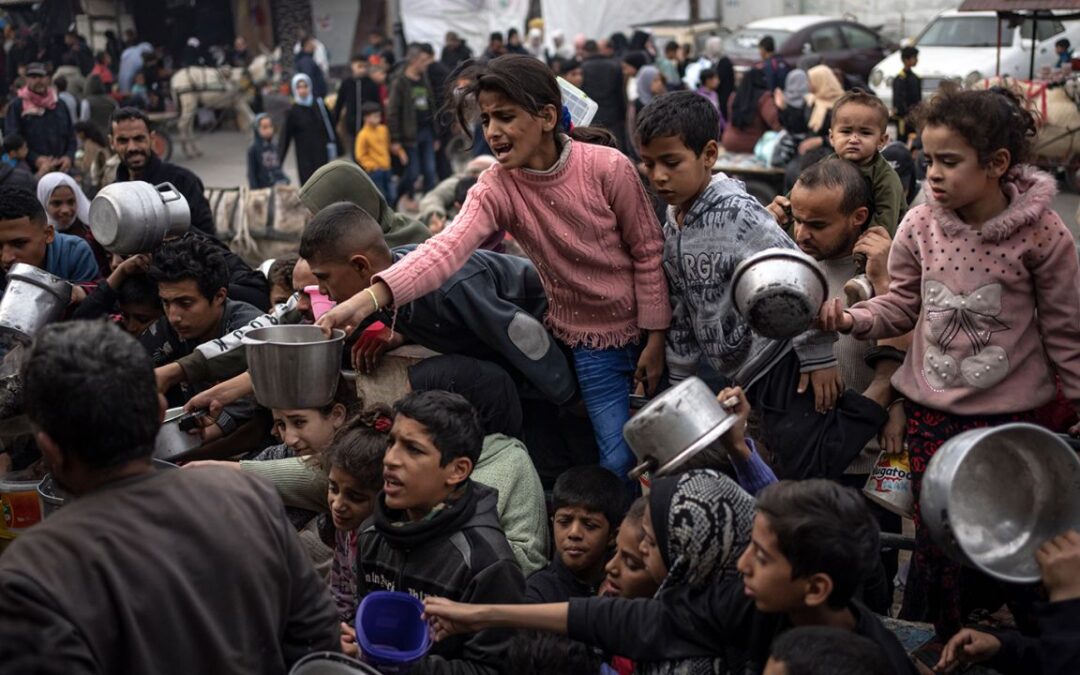These days, the mother-of-seven finds herself begging for food on the mud-caked streets of Rafah, in southern Gaza.
She tries to feed her kids at least once a day, she says, while tending to her husband, a cancer and diabetes patient.
“They are weak now, they always have diarrhea, their faces are yellow,” El Jamara, whose family was displaced from northern Gaza, told CNN on January 9. “My 17-year-old daughter tells me she feels dizziness, my husband is not eating.”
As Gaza spirals toward full-scale famine, displaced civilians and health workers told CNN they go hungry so their children can eat what little is available. If Palestinians find water, it is likely undrinkable. When relief trucks trickle into the strip, people clamber over each other to grab aid. Children living on the streets, after being forced from their homes by Israel’s bombardment, cry and fight over stale bread. Others reportedly walk for hours in the cold searching for food, risking exposure to Israeli strikes.
Even before the war, two out of three people in Gaza relied on food support, Arif Husain, the chief economist at the World Food Programme (WFP), told CNN. Palestinians have lived through 17 years of partial blockade imposed by Israel and Egypt.
Israel’s bombardment and siege since October 7 has drastically diminished vital supplies in Gaza, leaving the entire population of some 2.2 million exposed to high levels of acute food insecurity or worse, according to the Integrated Food Security and Nutrition Phase Classification (IPC), which assesses global food insecurity and malnutrition. Martin Griffiths, the UN’s emergency relief chief, told CNN the “great majority” of 400,000 Gazans characterized by UN agencies as at risk of starving “are actually in famine.” UN human rights experts have warned “Israel is destroying Gaza’s food system and using food as a weapon against the Palestinian people.”
Over more than 100 days, Palestinians in Gaza have seen mass displacement, neighborhoods turned to ash and rubble, entire families erased by war, a surge in deadly disease and the medical system wrecked by bombardment. Now starvation and dehydration are major threats to their survival.
“We are dying slowly,” reflected El Jamara, the mother in Rafah. “I think it’s even better to die from the bombs, at least we will be martyrs. But now we are dying out of hunger and thirst.”
Israel’s strikes on Gaza since the October 7 Hamas attacks have killed at least 26,637 people and injured 65,387 others, according to the Hamas-run Ministry of Health. The Israeli military launched its campaign after the militant group killed more than 1,200 people in unprecedented attacks on Israel and says it is targeting Hamas.



















